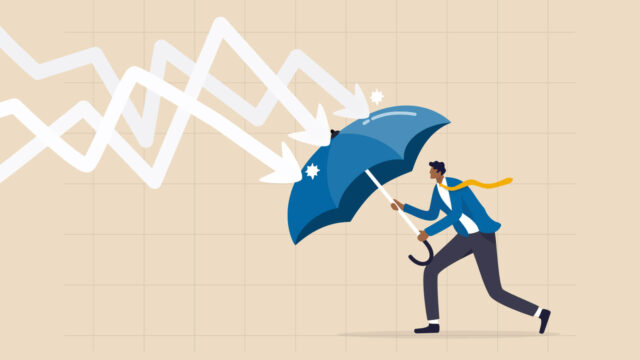Are you prepared for a recession? Here are five ways to protect yourself
Recessions are often a demanding exercise in change management and to navigate one successfully, everyone needs to conform, adapt and be ready to adjust.

Following the onset of the global economic crisis, much of the news, especially in Kenya has been dire. The unemployment rate is rising, inflation is worsening the rising cost of living, company profits have been falling for some time, and the housing sector and financial markets have been crashing.
There have also been reports that the government may default on its loan repayment obligations and this information has made headlines both locally and internationally.
The word to describe these developments is known as ‘recession.’ But how does a recession come about and how can you cushion yourself against it?
Research and case studies conducted on the Great Recession made findings in three major areas that affect people the most: decision making, debt and digitization.
The underlying message across all these areas is that recessions are often a demanding exercise in change management and to navigate one successfully, everyone needs to conform, adapt and be ready to adjust.
Here is what you can do to position yourself better against a recession:
Prioritize Your Emergency Fund
It is important that you stack up your money in safe and liquid accounts such as Money Market Funds (MMFs) as a cushion to fall back on.
With the ongoing rumors of a severe economic downturn, this money should help you stay afloat as you wait for the economy to recover.
Be Enlightened
Before or during such a period, it is important that you always keep an eye on economic reports and day to day developments for you to be prepared.
Being up-to-date will help you think and make informed decisions about your money and investments. Making crucial decisions on a whim or out of panic will likely have you in financial trouble if not ruin.
Diversify Your Investments
It is wise to spread your money across different asset classes. This may include stocks, bonds, MMFs or real estate. In a case where one asset class fails or performs poorly, the risk is reduced and cuts across the board.
Have International Investments
Given the current state of the Kenyan economy and the Shilling vs Dollar rate, it is important to consider investing in assets that are in no way linked to the Kenyan economy. This is because the ups and downs of the Kenyan economy will not affect the assets or investments in foreign countries, gold or dollar denominated bond funds.
Get Professional Advice
If you are in doubt or worried about your finances, you can always seek help and guidance from a financial coach. With a financial expert holding your hand, they can help you create a tailormade financial plan that aligns with your financial status.
Even with the current Kenyan economy seeming shaky, it is important that you recognize that this is not the first economic downturn and neither will it be the last that the country or world has seen. Try to not get caught up in the confusion and anxiety gripping the market, stay in line with your long-term plans and prepare yourself early to weather the storm.
